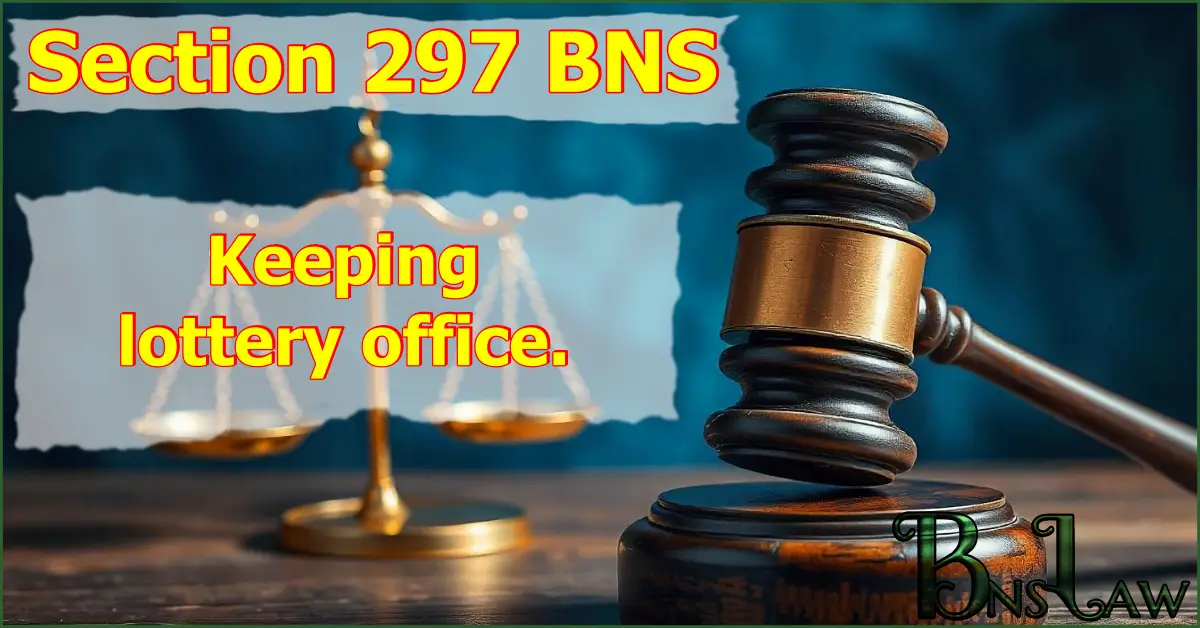Section 297 BNS | BNS 297
297(1) BNS
Whoever keeps any office or place for the purpose of drawing any lottery not being a State lottery or a lottery authorised by the State Government, shall be punished with imprisonment of either description for a term which may extend to six months, or with fine, or with both.
297(2) BNS
Whoever publishes any proposal to pay any sum, or to deliver any goods, or to do or forbear from doing anything for the benefit of any person, on any event or contingency relative or applicable to the drawing of any ticket, lot, number or figure in any such lottery, shall be punished with fine which may extend to five thousand rupees.
READ OTHER SECTIONS OF CHAPTER XV — OF OFFENCES AFFECTING THE PUBLIC HEALTH, SAFETY, CONVENIENCE, DECENCY AND MORALS
FAQs of BNS Section 297
-
297 BNS punishment and fine
Punishment and fine under Section and 297 of the BNS—
297(1): Imprisonment for 6 months, or fine, or both.
297(2): Fine of 5,000 rupees. -
297 BNS cognizable or not
The offence under Section 297(1) and 297(2) of the BNS is non-cognizable.
-
297 BNS bailable or not
The offence under Section 297(1) and 297(2) of the BNS is bailable.
-
297 BNS trial court
Offence specified in Section 297(1) and 297(2) of the BNS is triable by any Magistrate.
Important Points
- Cognizable Offences: These are offences where a police officer can arrest a person without a warrant.
- Non-Cognizable Offences: These are offences where a police officer cannot arrest a person without a warrant.
- Bailable Offences: These are offences where the accused can get bail from the police station itself. All bailable offences are listed in the First Schedule of the Bharatiya Nagarik Suraksha Sanhita (BNSS).
- Non-Bailable Offences: Offences in which bail is not granted directly from the police station but after hearing the case in the court, the judge decides when bail will be granted. All non-bailable offences are listed in the first schedule of the Bharatiya Nagarik Suraksha Sanhita (BNSS).
- In the above FAQ, “trial court” means the court that has jurisdiction to try the offence.
- In the above FAQ, the expression “Magistrate of the first class” and “Any Magistrate” does not include Executive Magistrates.
Read other Sections of the BNS
Reference Link: New Criminal Laws (BNS), Ministry of Home Affairs







